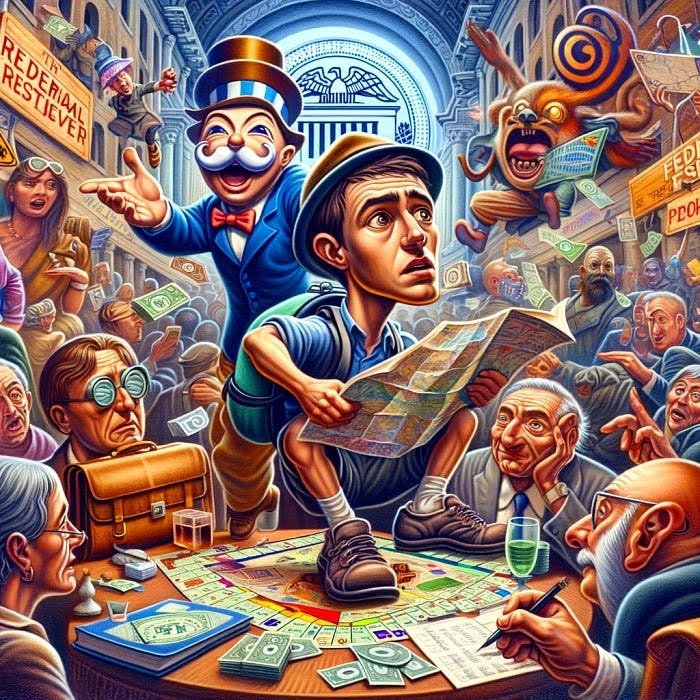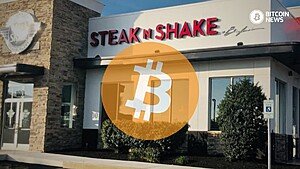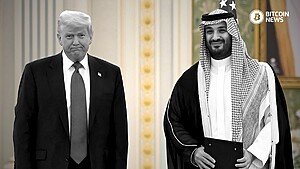I’ve often heard folks compare the traditional financial system to a crackhead in desperate need of their next hit. Now, that’s a bit harsh. At least the crackhead might stumble upon a self-help book or a motivational podcast that ultimately helps them quit. Our dear old financial system, however, seems like it is binge-watching a series called “Debt: An Infinite Saga” with no intention to hit ‘pause.’

As we slide into an era where even a financial ocean of liquidity can’t quench the system’s thirst, it’s clear that our money’s foundation should be as solid as The Rock’s biceps. But alas, fiat currency is built on something flimsier than a house of cards in a wind tunnel: coercion & debt. Debt-based money is such a paradox that it’s a wonder central planners haven’t been awarded an Oscar for Best Dramatic Performance.
Half a Century of Monetary Mystification
It’s been over 50 years since President Nixon decided to turn money into a magic act — now you see its value, now you don’t — by ditching the gold standard. It’s about time we, the people, start demanding a currency that’s as stable as our love for internet memes.
Imagine trying to navigate a foreign country without knowing the language, relying on a translator who’s less reliable than your phone’s autocorrect and as deceitful as a cat pretending to be innocent after knocking over your favorite vase. That’s our financial system in a nutshell.

Central banks, like the Federal Reserve, are the financial world’s equivalent of that dodgy translator. They seem to play a game of ‘Monopoly’ with their own set of rules, making decisions that benefit their exclusive club more than the likes of you and me. This results in an increasingly centralized party where the DJ keeps playing the same old song — inefficiency and high costs.
The Irony of Applauding Financial Mismanagement
Take the Fed’s hobby of bailing out “zombie” companies — it’s like handing out participation trophies at the Apocalypse Olympics. It creates a distorted economic reality, where money’s value is as stable as a pogo stick on a trampoline.
It’s like we’re using a ruler that keeps changing length. Good luck building a shelf with that! We need to shift gears toward a system where free markets reign supreme, rather than a select few decision-makers who might as well be throwing darts at a board to decide our economic fate.
Let’s talk about central banking celebs like Ben Bernanke and Janet Yellen, who snagged Nobel Prizes for their roles in this financial theater. It’s like rewarding a chef for a meal that gives everyone indigestion. They keep getting invited to fancy speaking gigs, showcasing the irony as boldly as a neon sign in Times Square.
Then there’s Satoshi Nakamoto, Bitcoin’s mysterious creator, who chose anonymity over fame. That’s like Batman, but for finance. Bitcoin offers a system that’s as transparent as grandma’s crystal, and decentralized to boot. Its ledger, the blockchain, is the financial equivalent of an open book — no sneaky intermediaries making a quick buck for holding the door open.

The Antidote to Unlimited Money Printing
Satoshi’s step back from Bitcoin is like a chef who leaves the kitchen after prepping a perfect recipe, allowing it to cook to perfection on its own. Bitcoin’s fixed supply is like a buffet that doesn’t keep adding mystery meat; you know what you’re getting, and there’s no secret sauce of unchecked money printing.
Bitcoin is like a financial Rosetta Stone, translating complex economic babble into a language every culture on earth speaks: math. It’s a breath of fresh air in a system currently as reliable as the weather forecast.
Watching the Fall of the Monetary Monopoly
Looking ahead, watching the Federal Reserve and other central banks try to maintain their control on market will be more entertaining than a reality TV show, at least for the macro enjoyers. High interest rates might just be the final rose in this economic dating show, leading to the departure of zombie businesses not meant for the long haul. While job losses are a bummer, it’s like saying goodbye to contestants who were never really there for the “right reasons.”
Nature’s Lessons in Financial Stability
This natural process is ultimately for the best. Left to their natural dynamics, economies have the potential to flourish. It is government intervention, not the mechanism of capitalism itself, that creates monopolies. Take, for instance, forest fires. Their intensity and destruction are often exacerbated when natural processes like brush clearing are inhibited. Similarly, in an economy, it is essential to allow the forces of innovation and entrepreneurship the freedom to challenge and dismantle large monopolies. This freedom is crucial for the economic ecosystem to self-regulate, evolve, and ultimately thrive.
A flourishing forest is not dependent on a single tree for its vitality. Instead, every plant, every creature contributes to a complex, interconnected dance of life, each playing its unique and essential role. Bitcoin mirrors this natural resilience. With each new challenge it faces, it grows stronger, akin to how every block of transactions added to its chain reinforces its stability. Each block resonates like the steady, rhythmic beat of a metronome, guiding a pianist through a complex piece. This is not a solo performance; it is a diverse, decentralized symphony of strength, echoing the enduring wisdom of nature’s own systems.

Noah’s Ark: Preparing for the Flood
In the end, all the smoke and mirrors of debt-based money, zero interest rate policy, and bank bailouts will reveal themselves to be as effective as a chocolate teapot. As nature shows us, trying to outsmart the basics is like trying to teach a cat to fetch — adorable but futile. Embracing decentralization aligns us with nature’s wisdom.
Nothing in life is guaranteed. If you were around during the old testament and you knew a flood was coming you would probably do everything in your power to get your friends and family on Noah’s Ark. Fast forward to 2024 and it is plausible that a new flood could be on the horizon, only this time it will be raining freshly printed dollars. Thus, the critical question isn’t if this dilution of value will occur, but rather if it will unfold gradually or suddenly. For those vigilant and foresighted, Bitcoin presents itself as a modern-day Ark, offering refuge from the impending financial deluge.










